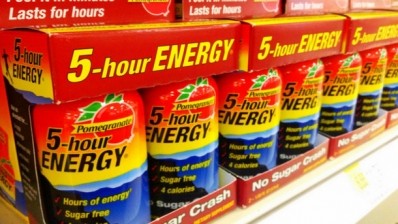KRISTEN POLOVOY: Recently there’s been an uptick in 'slack-fill' cases
Next we spoke to Kristen Polovoy, of counsel at Montgomery, McCracken, Walker & Rhoads.
What legislative issues will be top of mind in 2016?
The FDA has finalized the first two of seven major rules required under the Food Safety Modernization Act. Although compliance dates range from 1-4 years, most companies will need to comply with preventative controls for human and animal foods by August and September 2016, meaning that in less than one year, businesses are going to have to be prepared to be proactive (e.g., identify the potential hazards in their products; develop and implement written food safety plans that carry out preventative measures to ensure the hazards are minimized or prevented; monitor safety plans and verify that they work; have a recall plan), rather than reactive. Food manufacturers need to start gearing up now…
Will the FDA probes into natural labeling mean fewer lawsuits?
While it may cause a hiccup in existing all-natural label lawsuits, it’s unlikely to stem the tide of new suits altogether. The speed bump in existing lawsuits could come from the opportunity now for defendant food companies to invoke the primary jurisdiction doctrine and argue that while the FDA comment period is pending, the lawsuits should be stayed or dismissed. However, since FDA action (if they even elect to take any at the end of the comment period) is likely years away, it’s unlikely that plaintiffs’ lawyers will see this FDA comment period as an all-out stop-sign. If anything, defendants’ self-initiated removal of 'natural' from labels in recent months is likely to have more of an effect on the volume of new cases than the FDA comment process itself.
What else is on your radar?
Ironically, 'empty space' claims may rise to the occasion to fill the 'space' of all-natural in 2016. Laws prohibiting undisclosed, nonfunctional slack-fill (the void space in packaging) have existed for many years, but recently there’s been an uptick in cases brought not only by the plaintiffs’ bar but also district attorney offices against manufacturers using nondisclosed slack-fill.
Federal slack-fill laws state that a food is impermissibly misbranded if its container is made, formed or filled to be misleading. A container is presumptively misleading if it does not allow consumers to fully view the contents and if it contains nonfunctional slack-fill.
The key takeaway from the lawsuit spike for manufacturers? Clearly communicate actual product dimensions, disclose the reasons for any slack-fill on your package, and document your substantiation of the functional/non-deceptive) basis for use of slack-fill in packaging.



























